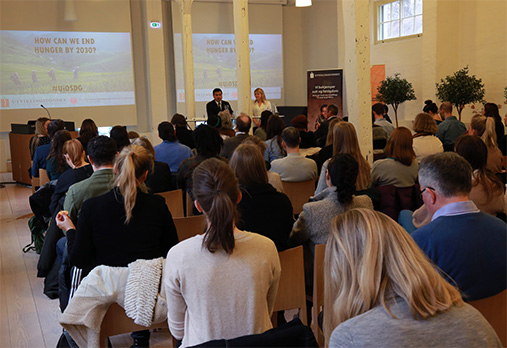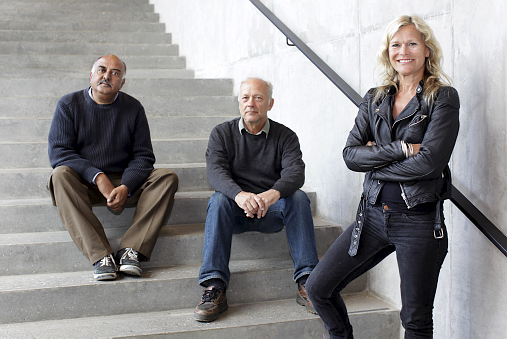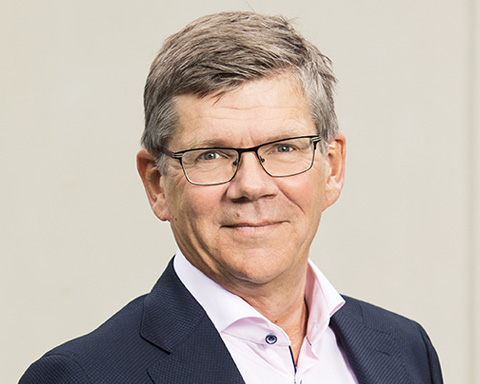By Rector Svein St?len, Vice-Rector ?se Gornitzka and Professor and Research Director at SUM Dan Banik

As part of an on-going effort to develop a University-wide strategy, the Centre for Development and the Environment (SUM) at UiO has established The Oslo SDG Initiative. The goal is to inform policies on sustainable development and the implementation of the 2030 Agenda by generating new knowledge and facilitating platforms for regular interaction among a diverse group of stakeholders – including government officials, practitioners, media, civil society, private sector, citizens and academia.
The SDGs promote a holistic approach to development. To achieve them, we must pursue an integrated approach to the economic, social and environmental aspects of development. And strong and broad-based universities such as UiO can contribute to this process by stimulating interdisciplinary research, intersectoral collaboration and knowledge sharing. Researchers at UiO have, for several decades, been working on issues of global development, and we have several influential individuals and research groups in many fields – including poverty, food security, gender equality, economic growth, law, health, education, environment and climate change. Many of our scholars and students are also explicitly working on issues directly related to specific SDG goals and targets.

When we now engage more explicitly with the SDGs in our activities, we thus build on a solid track record. As a comprehensive and research-intensive university, our priority is to ensure an analytical and systematic approach while studying the challenges and opportunities of the 2030 Agenda.
The Oslo SDG Initiative is an example of such a systematic approach. In addition to meeting the demand for SDG-related education, the Initiative will play a key role in informing policymaking through evidence-based research, as well as facilitating cross-sectoral dialogue and partnerships for the implementation of the 2030 Agenda. Research on sustainable development lies at the core of SUM’s activities. Founded in response to the Brundtland Commission report Our Common Future, SUM has promoted interdisciplinary research on the challenges and dilemmas posed by sustainable development since its establishment in 1990. Building on its track record of interdisciplinary research on the challenges and dilemmas posed by sustainable development and its extensive international network, SUM is well-placed to host The Oslo SDG Initiative.
The Initiative views governance, in particular SDG 16 – which promotes effective, accountable and inclusive institutions – as a foundational condition and a key “enabler” for several other SDGs to be achieved. The production of national data on peace, justice and effective institutions is a relatively new area of engagement for many actors, and the long-debated question of governance conceptualization and measurement is attracting renewed attention. Thus, of crucial importance for the Initiative is better understanding how and to what extent domestic policies aiming to achieve the SDGs balance social, economic, and environmental objectives. And how can policies relating to one resource can strengthen or undermine other objectives? To what extent are the benefits of sustainable develop?ment are equitably shared within a country, and how do domestic policies affect impacts on other countries? While these are just some of the many questions that must be addressed, we believe that UiO has a particular strength within these fields of research.
Achieving the SDGs not only requires policy coherence, but also global partnerships and alliances (including South-South cooperation and Private-Public Partnerships) for the co-production of knowledge on sustainable development – a specific focus of SDG 17. The partners of the Initiative thus include both national and international actors: SDG Bergen at the University of Bergen, The Sustainable Development Goals Center for Africa in Kigali; the Department of Political and Administrative Studies at Chancellor College, University of Malawi in Zomba; Institute for Sustainable Development Goals at Tsinghua University in Beijing, Centre for the Study of Law and Governance at Jawaharlal Nehru University in New Delhi; and Programa de Investigación de las Burocracias y los Estados Latinamericanos at Universidad Simón Bolívar in Quito.
The Oslo SDG Initiative aims to inform policies by facilitating platforms for regular interaction among a diverse group of stakeholders – including government officials, practitioners, media, civil society, private sector, citizens and academia. The Initiative will highlight synergies between existing research projects of partners and contribute to improved dialogue and dissemination of research results across disciplines, sectors and geographical locations. Network activities will include an interactive website, bi-annual summits, online courses, workshops, policy briefs, op-eds, blogs, journal articles and book projects.
The Initiative has already organized several public events and a series of consultations with businesses, civil society and officials in Norway. The plan is now to scale-up activities by organizing major conferences and roundtables in Norway and abroad as well as annual side-events parallel to the UN High-Level Political Forum on Sustainable Development (HLPF) in New York.
Communicating research results on the SDGs to the general public in Norway and partner countries will be prioritized through meetings open to the public. For example, at Arendalsuka in August of this year, we are planning several events that will examine the role of private sector activity in promoting the SDGs and the relationship between new forms of foreign aid and financing the SDGs in low-income economies. Our goal is to bridge the gap between research and policy by creating platforms for dialogue involving policymakers, private sector companies, activists, media, academics and citizens.
In order to create more awareness and interest for research and teaching within our institution, the SDGs will also be the focus of our Annual Festivities on 03 September. The event will feature short presentations from UiO scholars working on SDG-related topics, a panel debate with policymakers and a keynote address by the noted American anthropologist and physician Paul Farmer from Harvard University. These are just the beginnings of what hopefully will be a prolonged engagement at UiO on research and teaching related to the 2030 Agenda and the SDGs.




There is a saying that goes; “a ceramist serves food in his house on banana leaves” so is SUM at the University of Oslo. the call themselves the Oslo SDG2030 initiatives, with 2018 kick-off at SDG2 ending hunger by 2030. Then the question becomes, what about SDG4 quality education by 2030? What will be the difference between u SUM and a ceramist who serve his food on banana leaves?? By the way World hunger is man-made problem just as SUM the so-called Oslo SDG2030 initiative proves in so far
That said, in this SDG2030 era, we of Africa decadency in Oslo have since 2015 showed up?to foster Mother?Language UNESCO SDG4 quality education by 2030. Here is the Deal; He or she who wants to enter to live, work and research in Africa by 2020 must have general certificate in Africa Culture History. you must apply for your private 12 weeks studies in Seshew mdw nTr; the first written down language in Africa. Study on-line from Seba University and make it your obligation to sponsor your partners in Africa too.
How do you feel when only those from your class group sit only with yourselves to represent SDG2030?
Basing on Norwgian policy; migrants to Norway must learn Norwegian languange and culture - follow Africa SDG2030 intiative to emphases SDG4 and SDG10?
https://www.youtube.com/watch?v=x-dKbi-qOLg
https://www.youtube.com/watch?v=LcEDSmm56mc
?
Kommentering p? dette dokumentet er skrudd av.